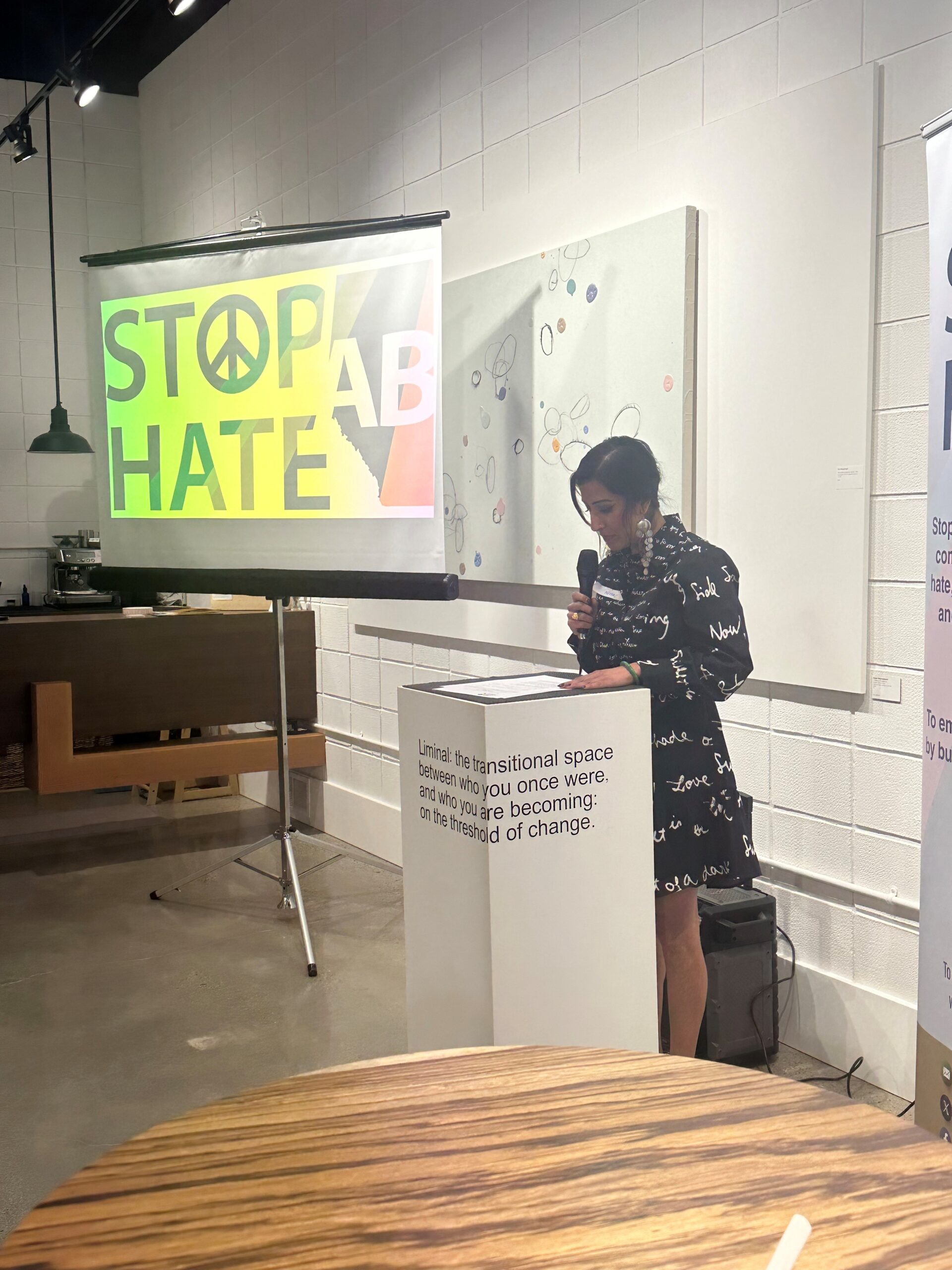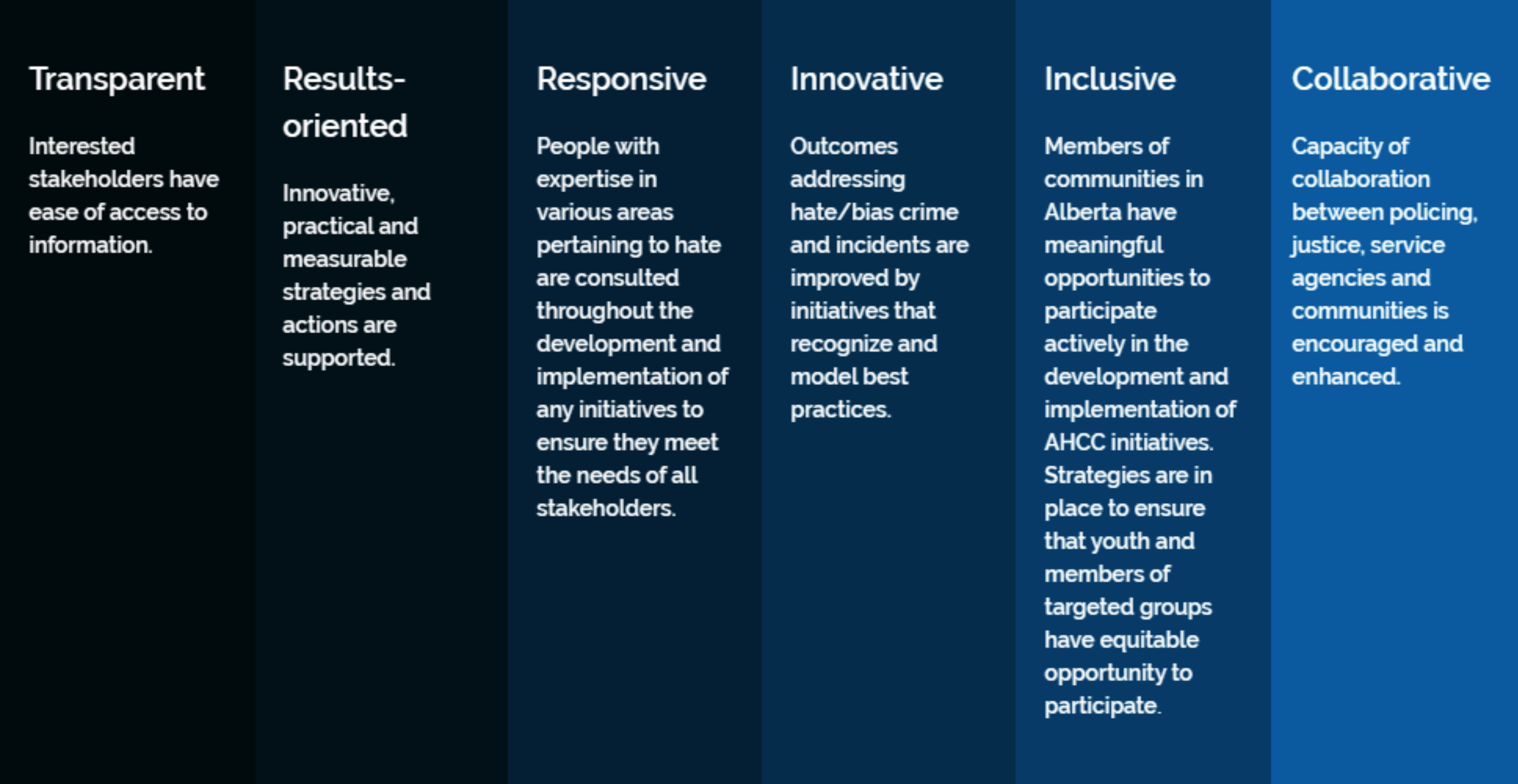

Why the STOPHATEAB.ca website?
Given the recent attention to hate-related incidents in Alberta, there is a significant need to document these incidents. The purpose of the #STOPHATEAB website is to fill this gap and create a space to document. Using our online form, users can document hate incidents, and can help build our map of documented hate incidents.
Information generated from the #STOPHATEAB website will support the outreach and education initiatives of the Alberta Hate Crimes Committee.
IMPORTANT: If you have been a victim of a HATE CRIME please report this to your local police department.

About StopHateAB
StopHateAB (formerly known as Alberta Hate Crimes Committee) is a non-profit organization compromised of government, law enforcement and community partners who work together to raise awareness and education related to hate crimes and incidents in Alberta.
In 2001, shortly after the attacks on the World Trade Centre in New York City, Alberta-based representatives from the justice sector, government, law enforcement, human rights institutions and community organizations concerned with hate and bias motivated violence formed what would become the StopHateAB.
The initial aim of the committee was to develop a province-wide framework to encourage a collaborative, integrated approach between law enforcement, the courts, and the community in preventing and responding to hate and bias motivated crime and incidents as well as enforcing hate crime laws. Today, the vision of the StopHateAB is to ensure that all Albertans are living in a safe, caring, and respectful community where crimes and incidents of hate are not acceptable values of a democratic and pluralistic society.
Committee membership includes key policing, community, education, non-profit, human rights and government partners knowledgeable in the delivery of hate/bias crimes and incidents prevention, education and response.

Goals and Objectives
Supporting collaborative and cooperative development of awareness initiatives that are relevant and responsive to community needs
Developing educational materials and resources by advocating for shared and consistent education and training for services providers and community members
Supporting law enforcement, government and community partnerships that bring attention to the negative impact of hate activities on community life
Advocating for increased support to victims of hate motivated activities
Encouraging the development of support mechanisms that promote the safety of victims and facilitate their active involvement in the criminal justice process
Sustaining commitment to comprehensive dialogue regarding response models that address the challenges associated with diverse communities responding to hate motivated crimes
Enabling Albertans to contribute to solutions through dialogue, problem solving and community action
Reducing gaps and avoiding duplication of services by encouraging coordination and collaboration within the broader community, amongst service delivery providers, police services and government departments
Providing counsel to policy makers, service providers, educators, media and community advocates
Advocating for consistent, standardized data collection and the communication of emerging trends, issues, and concerns withing agencies and their constituencies
Our Principles
Transparent
Interested stakeholders have ease of access to infomation.
Results-oriented
Innovative, practical and measurable strategies and actions are supported.
Responsive
People with expertise in various areas pertaining to hate are consulted throughout the development and implementation of any initiatives to ensure they meet the needs of all stakeholders
Innovation
Outcomes addressing hate/bias crime and incidents ate improved by initiatives that recognize and model best practices.
Inclusive
Members of Communities in Alberta have meaningful opportunities to participate actively in the development and implementation of AHCC initiatives, strategies are in place to ensure that youth and members of targeted groups have equitable opportunity to participate .
Collaborative
Capacity of collaboration between policing, justice, service, agencies and communities is encouraged and enhanced.



